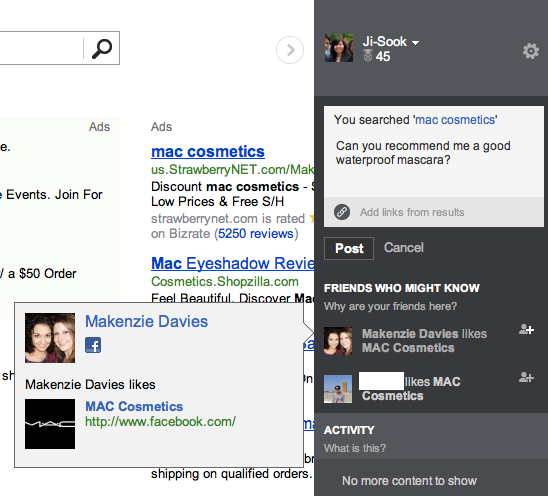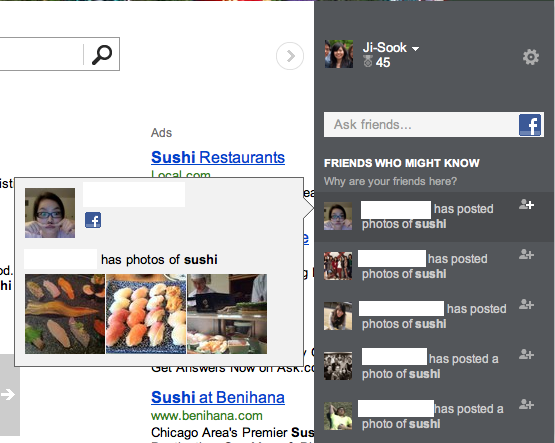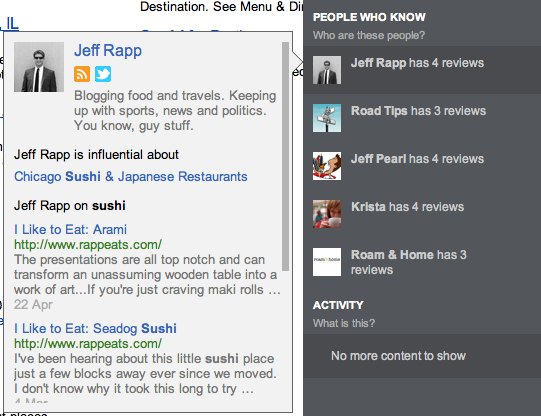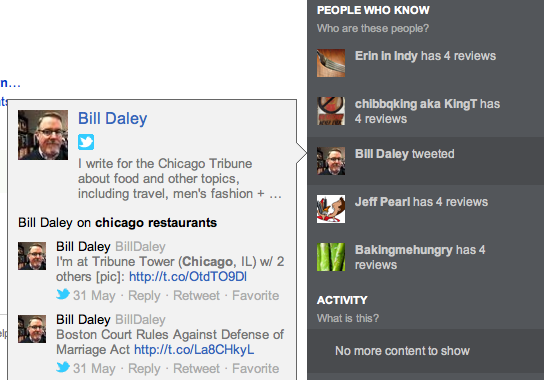Bing’s New Social Search: A Test Run
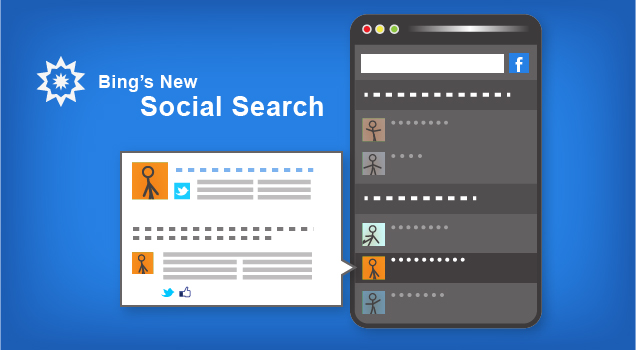
A few weeks ago, I wrote about Bing’s new social search and its notion of social referral through friends and experts. Now that Bing’s social search features have finally become available to the general public, I took a deeper look at how it all worked.
Ask a Friend
To learn how my interaction with the “Friends Who Might Know” worked, I searched for the brand “MAC Cosmetics.”
Once I submitted the query, Bing generated a list of my friends who liked MAC Cosmetics. When I hovered over my friends’ name, I saw a friend info box where I could click on the link to the MAC Cosmetics Facebook page. The “Ask friends” box allows you to 1) ask a question about the query , 2) tag friends who would be able to help find the answer, and 3) attach a link from the search results along with the question. In this example, I asked Makenzie, “Can you recommend a good waterproof mascara?”
Once I clicked the “Post” button, the friend I tagged received my question and link in the form of a Facebook message. My question and link automatically posted to my Facebook timeline, which allowed me to receive advice from other friends who were not included in Bing’s suggested friends list. When my friend responded to my question, I received her response through a Facebook message.
Social Results
To see how Bing came up with its social results, I performed a search for different types of topics, ranging from very broad to location specific to long-tailed keywords.
Broad Keywords
When I typed in a general term like “sushi,” Bing suggested Facebook friends who had photos with “sushi” in the photo caption.
In addition, Bing recommended sushi experts in the “People Who Know” section. Hovering over the experts’ name showed an info box that revealed the experts’ Twitter handles and the topics they were influential in – in this case, sushi or Chicago restaurants. The fact that Bing included experts who were influential in Chicago restaurants indicated that Bing’s social search, similar to Google’s search, considers geographic location of my query although I had no geographic keywords in my search.
Also in the expert info box, Bing presented sushi-related excerpts from the experts’ blogs or websites, with a direct link to that particular post. I could directly access the expert’s Twitter page by clicking on the Twitter icon, as well as receive the RSS feed to his or her blog.
Location-Based Keywords
Overall, for searches with a location marker (neighborhood, city, state or country), Bing suggests friends who have lived in that location or liked a Facebook page with the location in the page name. For instance, when I searched for “Chicago restaurants,” Bing showed me friends who lived in Chicago, liked Chicago or liked a page with “Chicago” in its name.
The expert suggestions were similar to the sushi results, where experts were influential about Chicago restaurants or food. If the expert didn’t have a blog, Bing’s expert info box presented sample tweets. In my search for “Chicago restaurants,” however, the sample tweets were not relevant, as seen below.
A Few Shortcomings
Bing’s social search is fairly new, and as with any new feature, Bing has a few shortcomings in its social results.
1. I don’t receive a list of experts for all types of searches. For instance, when I did a search for “electronic dance music,” Bing suggested friends who like house music, but it didn’t suggest any experts.
2. Search results for location markers are inconsistent. Queries containing “Chicago” or “Texas” show relevant friends, but a search for “Singapore” or even “New York” will not show friends who have lived in those locations, despite the fact that I have several friends who indicate on their Facebook that they have lived in those places.
3. Social search results are not always relevant or complete. For location marker searches such as queries with “Chicago,” Bing suggests only five friends, but I have more than five Facebook friends who live in Chicago. For social results that show friends who have uploaded a photo, Bing determines if a friend is relevant only if the search term appears in the caption of the friend’s uploaded photo. So, even if a friend uploaded a photo that’s related to the query, if that photo has no caption, Bing will not render that friend in its social results. Social search results may also be more relevant if Bing crawls data from not only Facebook location, likes and photos, but also from Facebook posts that contain keywords from the query.
4. Long-tailed searches (e.g., “new horror movies 2012”) do not show any results for friends nor experts.
5. Currently, Bing suggests experts from Twitter or Google+. It would be beneficial for both user and brand if Bing suggested Facebook pages for the searched brand.
6. When clicking on links within the friend or expert info box, links open in the same tab. It would be better if all links from the info box opened in a new tab so users don’t have to always click “Back” on their browser to return to their social results page.
***
Although Bing’s friend results are currently only from Facebook, Bing expects to include friends from other social platforms like Twitter, Foursquare, Google+ and LinkedIn, which will make social results much more comprehensive. Overall, Bing’s social search holds a lot of potential, and we’re looking forward to seeing its improvements, as well as its impact with brands, over the next few months.
Ji-Sook Yim is an Integrated Marketing Associate at Otherwise Incorporated.
Illustration Credit: Josh Epstein, Graphic Designer at Otherwise Incorporated




